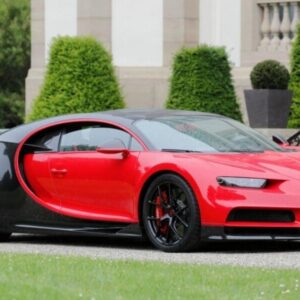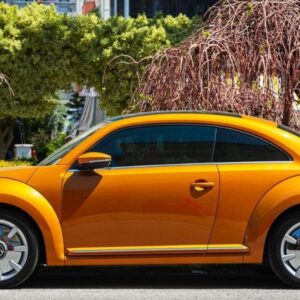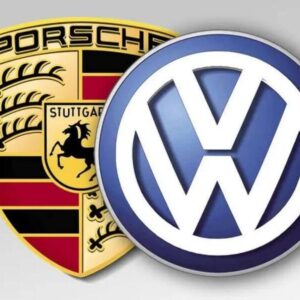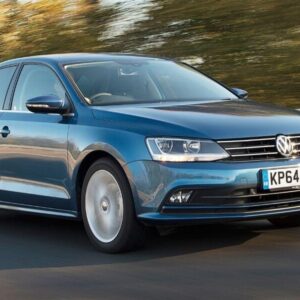What does TSI Stand for Volkswagen? Are TSI engines good? The Volkswagen turbocharged stratified injected (TSI) engine is a lightweight, high-power, fuel-efficient four-cylinder traditional combustion engine. It is found in some form on most Volkswagen vehicles, such as the Atlas, Tiguan, and Passat. A twin-charged performance version of the engine can be found in the Golf GTI and Jetta GLI.
The engine’s claim to fame is its low-end torque and power, something that turbocharged four-cylinder engines have historically struggled with. By utilizing their extensive diesel engine knowledge to refine their traditional combustion engines, Volkswagen has been able to downsize engines without sacrificing much in the way of performance. This is mainly thanks to higher pressure injection, smaller displacement volume, and a sophisticated intercooling system. With its intricate engineering, the TSI family of engines is able to outperform bigger engines.
What does TSI Stand for Volkswagen?
Turbocharged stratified injection is referred to as TSI. It is a Volkswagen engine technology that blends stratified injection and turbocharging to enhance performance and fuel economy.
Increasing the amount of air that enters an engine through the use of a turbocharger enables it to burn more gasoline and generate more power. With stratified injection, fuel is injected directly into the engine’s cylinders, increasing fuel efficiency and lowering emissions.
Volkswagen’s Golf, Jetta, Passat, and Tiguan are among the models that use TSI engines. The performance, dependability, and fuel economy of TSI engines are well known.
The following are some advantages of TSI engines:
- Enhanced fuel economy: TSI engines provide better fuel economy than conventional gasoline engines. This is so that the combustion process can be improved by TSI engines’ use of turbocharging and stratified injection.
- Performance improvement: TSI engines are more powerful and torque-dense than conventional gasoline engines. This is so that more fuel and air may be burned by TSI engines.
- Less emissions are produced by TSI engines than by conventional gasoline engines. This is so that the combustion process can be improved by TSI engines’ use of turbocharging and stratified injection.
In general, TSI engines are a fantastic option for drivers seeking performance, dependability, and fuel economy.
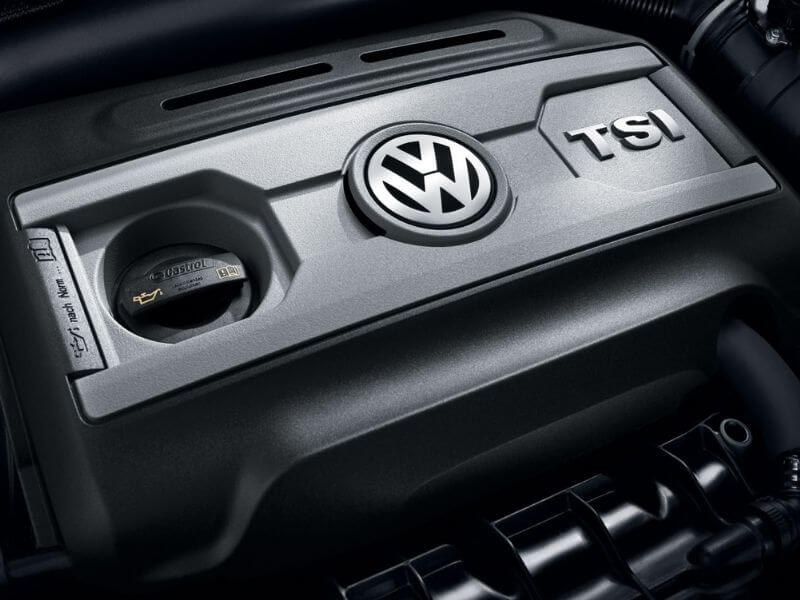
Are TSI engines good?
Yes, TSI engines are typically regarded as being high-quality engines. They are renowned for their dependability, effectiveness, and fuel efficiency.
Because they use stratified injection and turbocharging to enhance combustion, TSI engines are more fuel-efficient than conventional gasoline engines. By forcing more air into the engine, turbocharging increases fuel combustion and increases power output. With stratified injection, fuel is injected directly into the engine’s cylinders, increasing fuel efficiency and lowering emissions.
Additionally, TSI engines have higher power and torque than conventional gasoline engines. This is so that more fuel and air may be burned by TSI engines.
TSI engines are trustworthy as well. Volkswagen has been employing TSI engines for a long time, and they are known for being dependable.
However, several TSI engine issues, like carbon buildup and oil usage, have been reported. These issues are, however, quite uncommon, and TSI engines are typically regarded as reliable engines.
In general, TSI engines are a fantastic option for drivers seeking performance, dependability, and fuel economy.
Here are a few well-known Volkswagen models with TSI engines:
- Golf
- Jetta
- Passat
- Tiguan
- Arteon
- Atlas
- Cross Sport Tiguan
If you are considering buying a Volkswagen vehicle with a TSI engine, be sure to do your research and read reviews from other owners. This will help you to make an informed decision about whether or not a TSI engine is the right choice for you.
Is TDI better than TSI for fuel economy?
In general, TDI engines outperform TSI engines in terms of fuel efficiency. The terms “TDI” and “TSI” stand for turbocharged direct injection and turbocharged stratified injection, respectively. Although both engines are turbocharged, the TDI uses diesel fuel and the TSI uses gasoline.
Diesel fuel has more energy per gallon than gasoline because it is more energy dense. Accordingly, TDI engines have a greater range per gallon of fuel than TSI engines.
Additionally, TDI engines are more effective than TSI engines at converting fuel into energy. This is due to the fact that TDI engines have a higher compression ratio, which causes the fuel to be more compressed before burning. As a result, the combustion process is more fully completed, producing more energy and fewer emissions.
These aspects make TDI engines more fuel-efficient than TSI engines in general. For instance, the EPA estimates that the 2023 Volkswagen Golf TDI will achieve 31 city mpg and 43 highway mpg, while the 2023 Volkswagen Golf TSI will achieve 28 city mpg and 37 highway mpg.
When deciding between a TDI and a TSI engine, there are still some additional things to take into account, such as the cost of fuel and the sort of driving you undertake. If you do a lot of city driving, the greater fuel cost of a TDI engine may negate its fuel economy advantages because diesel fuel is normally more expensive than gasoline.
Furthermore, TDI engines may cost more to buy and operate than TSI engines. People who are worried about the environment may not want to choose TDI engines because they also emit greater pollutants.
In the end, weighing the advantages and disadvantages of each engine as well as taking into account your unique requirements and preferences is the best approach to determine which engine is best for you.
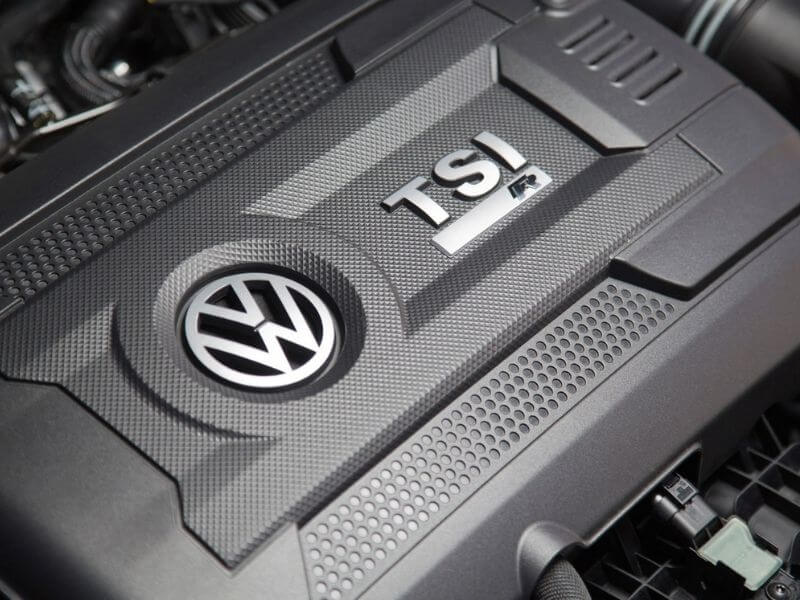
Is TSI turbo and supercharged?
Certain TSI engines do indeed have both turbochargers and superchargers. It is referred to as twincharging. The air intake of twincharged TSI engines is increased using a turbocharger and a supercharger, producing higher power and torque.
Although they function similarly, superchargers and turbochargers use various techniques to increase the engine’s air intake. The air intake is compressed by turbochargers using the engine’s exhaust gases to power a turbine. Superchargers use a belt or chain to compress the air intake and are powered by the engine’s crankshaft.
The turbocharger and supercharger on a twincharged TSI engine collaborate to increase the engine’s air intake at various engine speeds. While the turbocharger is utilized at high engine speeds to produce higher boost, the supercharger provides immediate boost at low engine speeds.
Volkswagen’s Golf GTI and R, Jetta GLI, and Passat R-Line are among the models that feature twincharged TSI engines. TSI twincharged engines are renowned for their outstanding fuel efficiency and performance.
The following are some advantages of twincharged TSI engines:
- Performance improvement: TSI twincharged engines provide higher power and torque than conventional gasoline engines. This is possible because TSI twincharged engines can burn more gasoline and air.
- Twincharged TSI engines are more fuel-efficient than conventional gasoline engines. This is due to the increased fuel and air burn efficiency of twincharged TSI engines.
- Emissions reduction: Twincharged TSI engines emit less pollution than conventional gasoline engines do. This is due to the increased fuel and air burn efficiency of twincharged TSI engines.
In general, drivers seeking performance, fuel efficiency, and low emissions should consider twincharged TSI engines.
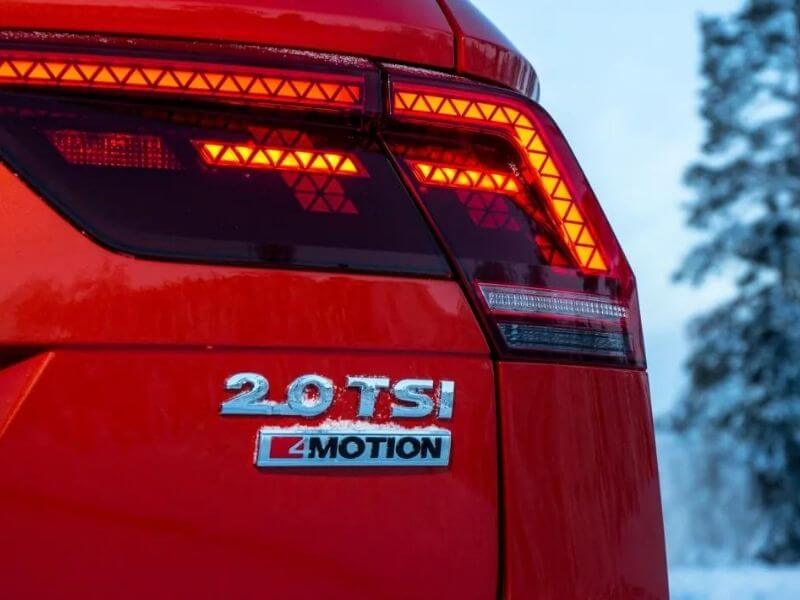
Above is information about What does TSI Stand for Volkswagen? Are TSI engines good?. Hopefully, through the above content, you have a more detailed understanding of TSI Stand for Volkswagen. Thank you for reading our post.

